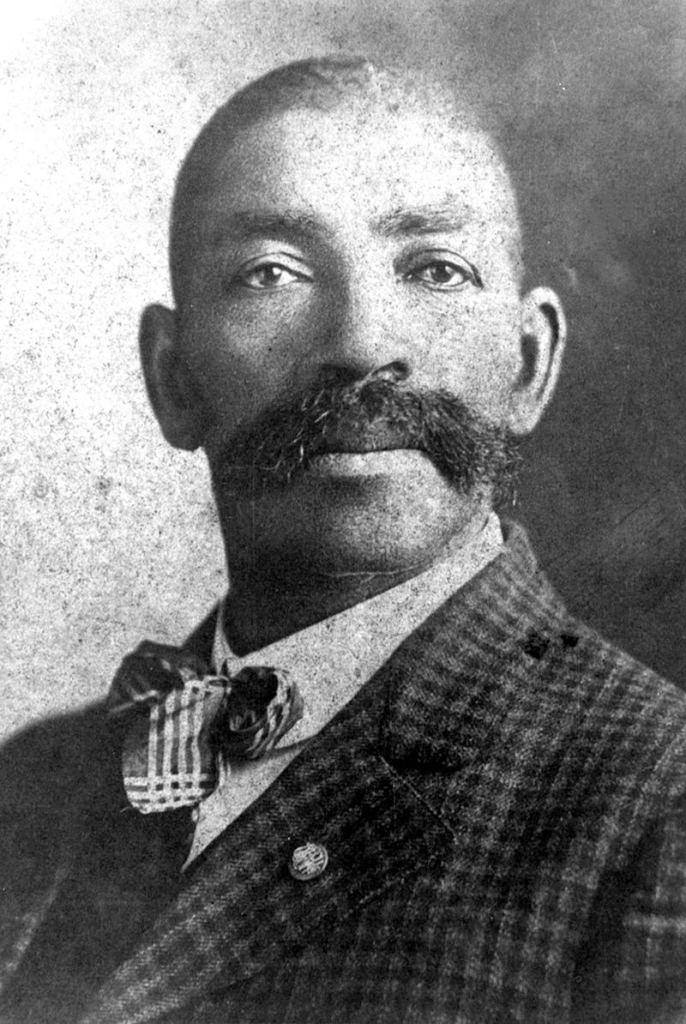The Wild West era of American history is known for its tales of outlaws, cowboys, and lawmen who brought justice to the untamed frontier. Among these legendary figures, Bass Reeves stands out as one of the most remarkable lawmen of his time. This article delves into the life, accomplishments, and lasting legacy of Bass Reeves, an African American lawman who defied the odds and left an indelible mark on the history of the Wild West.
Bass Reeves: From Enslavement to Freedom
Bass Reeves’s path to becoming a Deputy U.S. Marshal was paved with determination, skill, and a remarkable opportunity. In 1875, Judge Isaac C. Parker, also known as the “Hanging Judge” of the Western District of Arkansas, appointed Reeves as a deputy U.S. marshal. This appointment was a significant milestone, as Reeves became the first African American deputy marshal west of the Mississippi River.

Reeves’s appointment was not merely a gesture of diversity, but a recognition of his exceptional abilities and dedication to upholding the law. Judge Parker, known for his tough stance on crime, saw in Reeves an individual with the skills and courage necessary to enforce justice in the untamed territories of the Wild West.
As a deputy U.S. marshal, Reeves was responsible for maintaining law and order in a vast and dangerous territory. He patrolled the Indian Territory, which encompassed present-day Oklahoma, along with parts of Arkansas and Texas. This region was notorious for its lawlessness, where outlaws, fugitives, and desperados sought refuge and wreaked havoc on the communities.
Reeves’s success as a lawman was not solely due to his badge and authority. He possessed a unique set of skills that set him apart. His tracking abilities were legendary, often enabling him to locate outlaws who had eluded capture by others. Reeves had an uncanny knack for reading the terrain, interpreting signs, and following trails that led him straight to his targets. His familiarity with the Indian Territory, having taken refuge there during his escape from slavery, gave him a distinct advantage in navigating the landscape and understanding the local dynamics.
One of Reeves’s most notable tactics was his ability to blend in seamlessly with the outlaws he pursued. He often disguised himself as an outlaw, infiltrating criminal gangs to gather crucial intelligence and gain the element of surprise. This strategic approach allowed him to apprehend notorious criminals who would have otherwise been wary of law enforcement.
Reeves’s fearless nature and exceptional marksmanship further cemented his reputation as an outstanding lawman. He never shied away from danger and was known for his quick draw and accuracy with a firearm. The combination of his sharp intellect, physical prowess, and unwavering dedication to justice made him a formidable force in the fight against crime.
Despite the immense challenges he faced as an African American lawman in a racially divided era, Reeves carried out his duties with integrity and professionalism. His commitment to upholding the law and protecting the innocent earned him respect from both the communities he served and his fellow law enforcement officers.
Escaping the Chains
Despite the oppressive circumstances, Bass Reeves managed to escape his enslavement during the American Civil War. Fleeing to the Indian Territory (present-day Oklahoma), he found refuge among the Seminole and Creek Native American tribes. This period marked the beginning of his journey towards an extraordinary future.
Bass Reeves’s Road to Becoming a Deputy U.S. Marshal
Reeves’s journey took a significant turn when, in 1875, he was appointed as a deputy U.S. marshal by Judge Isaac C. Parker, the famous “Hanging Judge” of the Western District of Arkansas. Reeves’s appointment was groundbreaking, making him the first African American deputy marshal west of the Mississippi River.
Fearless and Formidable
Reeves’s reputation as a lawman grew rapidly due to his relentless pursuit of justice and his exceptional tracking and marksmanship skills. He was known for his disguise tactics, often posing as an outlaw to infiltrate gangs and bring criminals to justice.
Tales of Bravery and Heroism for Bass Reeves
Reeves’s career was filled with countless tales of bravery and heroism. He apprehended notorious outlaws such as Belle Starr and Bob Dozier, facing dangerous situations with unwavering determination. His ability to outsmart criminals and navigate the treacherous landscapes of the Wild West became the stuff of legends.
Bass Reeves, A Symbol of Justice

Reeves’s commitment to upholding the law and ensuring the safety of the communities he served turned him into a symbol of justice. His reputation transcended racial boundaries, earning him respect from both law-abiding citizens and outlaws alike. Reeves’s legacy remains an important reminder of the triumph of justice over prejudice.
Inspiring Future Generations
Bass Reeves’s impact on the Wild West and American history cannot be overstated. His remarkable achievements shattered racial barriers and served as an inspiration for future generations of law enforcement officers. Despite facing discrimination and adversity, he stood tall and proved that courage, dedication, and a commitment to justice could overcome any obstacle.




Hey, you used to write magnificent, but the last several posts have been kinda boring? I miss your great writings. Past several posts are just a little bit out of track! come on!
Thanks for your tips. One thing really noticed is that banks in addition to financial institutions are aware of the spending behaviors of consumers plus understand that plenty of people max out and about their own credit cards around the vacations. They prudently take advantage of this real fact and start flooding the inbox and also snail-mail box having hundreds of 0 APR credit card offers shortly after the holiday season concludes. Knowing that if you are like 98 of American public, you’ll hop at the opportunity to consolidate financial debt and transfer balances to 0 rate credit cards.
hi!,I like your writing so much! share we communicate more about your article on AOL? I require a specialist on this area to solve my problem. Maybe that’s you! Looking forward to see you.
I do agree with all of the ideas you have presented in your post. They’re really convincing and will certainly work. Still, the posts are very short for beginners. Could you please extend them a bit from next time? Thanks for the post.